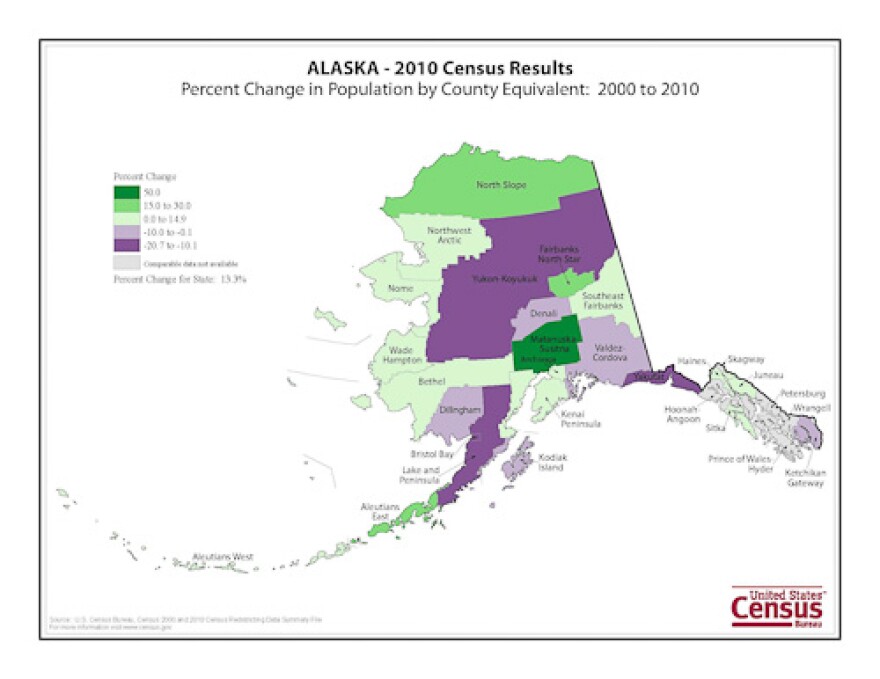The U.S. Census, the once-a-decade count of people living in America, kicked off in Alaska back in January. The count has met with a lot of stumbling blocks in the state since then, not the least of which is the Covid-19 pandemic.
Nicole Borromeo is executive vice president and general council for the Alaska Federation of Natives in Anchorage.
“No other state presents the challenges that Alaska does in terms of returning a complete and accurate account. So for that reason, the Bureau did get started early, on January 21st, in the town of Toksook Bay. And they hoped to rapidly move into other parts of the YK Delta and the Interior up through the Northwest and into the Slope,” Borromeo said. “And they were immediately hit by winter storms that threw their schedule off. And, you know, we're weeks delayed in getting to much of the YK Delta and the Interior. So it's, it's really just been one thing after another. You couldn't have planned a worse year to try and take the Census in Alaska.”
And as a result of Covid-19, census workers were pulled out of the villages in March, and extended the deadline for completing the Census until the end of October.
“But then a few weeks ago, out of nowhere did a 180 and said, we're actually ending it on the 30th of September. So we are trying to get them to reinstate that October 31st deadline. The odds do not look good,” she said. “So we're now trying to move to plan B, which is to make sure that every Alaskan knows that September 30th is the cutoff date for the census.”
One thing the AFN is trying to do is encourage any household that can be identified as “Native,” be identified as Native.
“And by that, what we mean is if you're living in a mixed race household as an Alaska Native and your partner is non-Native, whether or not they're white, black, Asian, Pacific Islander, what have you, we want you to put your information in first. If you're calling the Census, give them your information first. If you're online doing the census, put in your information first, if you're filling out that flyer that came in the mail way back in the spring that you held onto it, write down your information first,” Borromeo said. “Because what it does is counts the whole household as an Alaska Native household. And that means more funding back into the state.”
Borromeo gave an example from her own experience.
“I'm Alaska Native. I'm from McGrath. I'm Athabaskan. My four children are Athabaskan. So my husband's the only non-Native in the house. Now if we put his information in first, the house is counted as a non-Native house, even though he's the only non-Native in the house and he's living with five Alaska Natives. So when we do the census, my information goes in first, the whole house is counted as a Native house. And that helps federal funding.”
Borromeo says each person counted in the Census is worth about $3,500 per year, or $35,000 over the course of the decade between counts. For a family of four, that would add up to $140,000.
AFN pushes for Census completion by Native households

US Census

